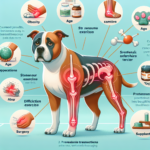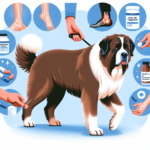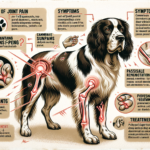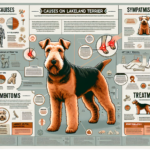Weimaraner Joint Pain: Causes, Symptoms, Prevention, and Treatment
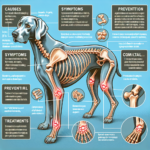
Introduction
The Weimaraner, often referred to as the “Gray Ghost” due to its sleek, silver-gray coat, is a breed known for its elegance, intelligence, and athleticism. Originating from Germany in the early 19th century, Weimaraners were initially bred for hunting large game such as boar, bear, and deer. Over time, they have become popular as versatile hunting dogs and beloved family pets. Their notable features include a strong, muscular build, expressive amber or blue-gray eyes, and a short, smooth coat.
While Weimaraners are generally healthy dogs, they are prone to certain health issues, including bloat, heart disease, and various skin conditions. However, one of the most significant concerns for this breed is joint pain, which can severely impact their quality of life.
Joint health is particularly crucial for Weimaraners due to their high energy levels and active lifestyle. Ensuring their joints remain healthy can help them maintain their agility and prevent debilitating conditions that could hinder their mobility and overall well-being.
Breed-Specific Joint Pain Risks
Genetic Predisposition
Weimaraners are genetically predisposed to several joint-related issues, including hip dysplasia, elbow dysplasia, and arthritis. Hip dysplasia is a condition where the hip joint does not fit properly into the hip socket, leading to pain and mobility issues. Elbow dysplasia involves abnormal development of the elbow joint, causing lameness and discomfort. Arthritis, a degenerative joint disease, can also affect Weimaraners, leading to chronic pain and stiffness.
Age-Related Risks
As Weimaraners age, the risk of developing joint pain increases. Typically, signs of joint issues may start to appear in middle age, around 5 to 7 years old. However, some dogs may show symptoms earlier, especially if they have a genetic predisposition or have experienced joint injuries. It’s essential for owners to monitor their Weimaraners closely as they age and be vigilant for any signs of joint pain.
Activity Level and Joint Stress
Weimaraners are known for their high energy levels and need for regular exercise. They excel in various activities, including running, hiking, and agility training. While their active lifestyle is beneficial for their overall health, it can also put significant stress on their joints. Repetitive high-impact activities, such as jumping and running on hard surfaces, can exacerbate joint issues and lead to pain and discomfort.
Common Symptoms of Joint Pain in Weimaraners
General Symptoms
Owners should be aware of the following common symptoms of joint pain in Weimaraners:
- Limping or favoring one leg
- Stiffness, especially after rest or exercise
- Reluctance to move, jump, or climb stairs
- Decreased activity level or interest in play
- Swelling or heat around the joints
- Whining or showing signs of discomfort when touched
Breed-Specific Symptoms
In Weimaraners, joint pain may manifest more noticeably due to their active nature. Owners might observe a sudden decrease in their dog’s enthusiasm for physical activities or a change in their gait. Additionally, Weimaraners may become more irritable or anxious if they are experiencing chronic pain.
When to Consult a Vet
If you notice any of the above symptoms in your Weimaraner, it’s crucial to consult a veterinarian promptly. Early diagnosis and intervention can help manage joint pain more effectively and prevent further deterioration. Regular veterinary check-ups are also essential for monitoring your dog’s joint health and catching any issues early.
Preventive Measures for Joint Health
Exercise Recommendations
Maintaining an appropriate exercise routine is vital for preserving joint health in Weimaraners. While they need regular physical activity to stay healthy, it’s essential to balance high-impact exercises with low-impact activities. Swimming is an excellent option as it provides a full-body workout without putting stress on the joints. Additionally, incorporating gentle walks and controlled play sessions can help keep their joints healthy without overexertion.
Dietary Suggestions
A balanced diet rich in essential nutrients can support joint health in Weimaraners. Consider incorporating the following into their diet:
- Glucosamine and Chondroitin: These supplements can help maintain cartilage health and reduce joint pain.
- Omega-3 Fatty Acids: Found in fish oil, these fatty acids have anti-inflammatory properties that can benefit joint health.
- Antioxidants: Vitamins C and E can help reduce inflammation and support overall joint health.
Weight Management
Maintaining a healthy weight is crucial for reducing joint stress in Weimaraners. Excess weight can exacerbate joint issues and lead to increased pain and discomfort. Ensure your dog is on a balanced diet and monitor their weight regularly. Consult your veterinarian for specific dietary recommendations and portion control guidelines tailored to your dog’s needs.
Early Screening and Monitoring
Early screening and regular monitoring can help detect joint issues before they become severe. Consider the following strategies:
- Regular Veterinary Check-ups: Schedule routine visits to the vet to monitor your dog’s joint health and catch any issues early.
- Genetic Testing: If you are getting a Weimaraner puppy, consider genetic testing to identify any predisposition to joint issues.
- Orthopedic Evaluations: Periodic orthopedic evaluations can help assess your dog’s joint health and identify any early signs of problems.
Treatment Options for Joint Pain
Non-Surgical Treatments
Several non-surgical treatment options can help manage joint pain in Weimaraners:
- Medications: Nonsteroidal anti-inflammatory drugs (NSAIDs) can help reduce pain and inflammation. Your vet may also prescribe pain relievers or joint supplements.
- Physical Therapy: Physical therapy can improve joint mobility and strengthen the muscles around the joints. Techniques may include massage, stretching, and controlled exercises.
- Lifestyle Adjustments: Modifying your dog’s activity level and providing a comfortable living environment can help manage joint pain.
Surgical Options
If joint pain becomes severe, surgical intervention may be necessary. Common surgical options for Weimaraners include:
- Hip Replacement: Total hip replacement can provide significant pain relief and improve mobility in dogs with severe hip dysplasia.
- Arthroscopy: This minimally invasive procedure can help diagnose and treat joint issues by removing damaged tissue or repairing ligaments.
- Joint Fusion: In cases of severe arthritis, joint fusion can stabilize the joint and reduce pain.
Alternative Therapies
Alternative therapies can complement traditional treatments and provide additional relief for joint pain:
- Acupuncture: Acupuncture can help reduce pain and inflammation by stimulating specific points on the body.
- Hydrotherapy: Water-based exercises can improve joint mobility and reduce pain without putting stress on the joints.
- Massage Therapy: Regular massages can help relax muscles, improve circulation, and reduce joint pain.
Lifestyle and Management Tips
Daily Care Routine
A consistent daily care routine can help manage and alleviate joint pain in Weimaraners:
- Provide regular, low-impact exercise such as walking or swimming.
- Incorporate joint supplements into their diet as recommended by your vet.
- Monitor their weight and adjust their diet as needed to maintain a healthy weight.
- Schedule regular veterinary check-ups to monitor joint health.
Modifying the Home Environment
Making your home more comfortable for a dog with joint pain can significantly improve their quality of life:
- Use ramps or stairs to help them access furniture or vehicles without jumping.
- Provide orthopedic beds to support their joints while resting.
- Ensure their living area is free of slippery surfaces to prevent falls.
Long-Term Management
Long-term management strategies can help keep your Weimaraner active and happy despite joint pain:
- Continue regular, low-impact exercise to maintain joint mobility and muscle strength.
- Adjust their activity level based on their condition and consult your vet for personalized recommendations.
- Stay consistent with any prescribed medications or supplements.
- Monitor their condition regularly and make adjustments as needed to ensure their comfort and well-being.
FAQs About Weimaraners and Joint Pain
What are the early signs of joint pain in Weimaraners?
Early signs of joint pain in Weimaraners include limping, stiffness, reluctance to move, and decreased activity levels. If you notice any of these symptoms, consult your veterinarian for a thorough evaluation.
Can joint pain in Weimaraners be prevented?
While it may not be possible to prevent joint pain entirely, you can take several measures to reduce the risk. These include maintaining a healthy weight, providing appropriate exercise, incorporating joint supplements into their diet, and scheduling regular veterinary check-ups.
Are there specific exercises that are better for Weimaraners with joint pain?
Low-impact exercises such as swimming and gentle walks are ideal for Weimaraners with joint pain. These activities help maintain joint mobility and muscle strength without putting excessive stress on the joints.
What dietary supplements can help support joint health in Weimaraners?
Supplements such as glucosamine, chondroitin, and omega-3 fatty acids can support joint health in Weimaraners. Consult your veterinarian for specific recommendations and dosages tailored to your dog’s needs.
When should I consider surgical options for my Weimaraner’s joint pain?
Surgical options should be considered if non-surgical treatments are not providing sufficient relief and your dog’s quality of life is significantly impacted. Consult your veterinarian to discuss the best surgical options for your dog’s specific condition.
Conclusion
Joint pain is a significant concern for Weimaraners, but with proper care and attention, it can be managed effectively. By understanding the breed-specific risks, recognizing early symptoms, and implementing preventive measures, you can help ensure your Weimaraner maintains healthy joints throughout their life. Regular veterinary check-ups, a balanced diet, appropriate exercise, and a comfortable living environment are all crucial components of joint health management. By taking these steps, you can help your Weimaraner live a happy, active, and pain-free life.

